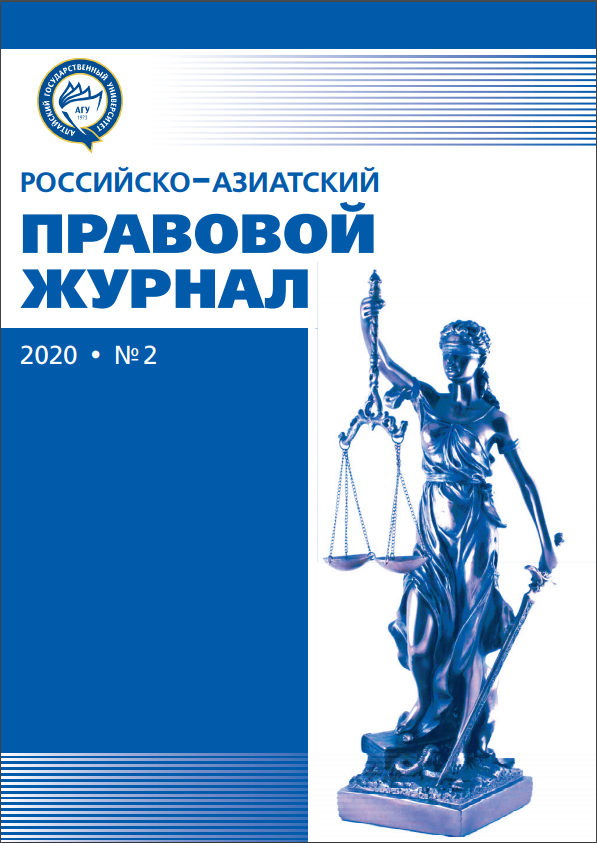IDEAS OF THE ELITE IN THE CONSERVATIVE LEGAL IDEOLOGY OF YURI KRIZHANICH
УДК 34 ББК 67.1
Abstract
The article analyzes the ideas of the Slavic thinker Yuri Krizhanich concerning the image of the elite inRussia of the XVII century. The authors analyze the division of society into classes, the distribution of social responsibilities, and requirements for elite representatives. These theses are a continuation of the authors«previous research on the theory of elite and ruling selection in the conservative legal ideology of Russia.
Downloads
References
2. Последнее слово умирающего русского мальчика Маркела в романе «Братья Карамазовы». Ф.М. Достоевский. Собрание сочинений в 15 томах. Л., 1991. Том 9.
3. Skok P. Etimologijski rječnik hrvatskoga ili srpskoga jezika. Zagreb: Jugoslavenska akademija znanosti i umjetnosti, 1973. Kn. 3.
4. История правовых учений России. X–XXI вв. : учебник : в 3 томах / под ред. В.В. Сорокина и А.А. Васильева. М., 2014.
Russian-Asian Law Journal is a golden publisher, as we allow self-archiving, but most importantly we are fully transparent about your rights.
Authors may present and discuss their findings ahead of publication: at scientific conferences, on preprint servers, in public databases, and in blogs, wikis, tweets, and other informal communication channels.
Russian-Asian Law Journal allows authors to deposit manuscripts (currently under review or those for intended submission) in non-commercial, pre-print servers such as ArXiv.
Authors who publish with this journal agree to the following terms:
- Authors retain copyright and grant the journal right of first publication with the work simultaneously licensed under a Creative Commons Attribution License that allows others to share the work with an acknowledgement of the work's authorship and initial publication in this journal.
- Authors are able to enter into separate, additional contractual arrangements for the non-exclusive distribution of the journal's published version of the work (e.g., post it to an institutional repository or publish it in a book), with an acknowledgement of its initial publication in this journal.
- Authors are permitted and encouraged to post their work online (e.g., in institutional repositories or on their website) prior to and during the submission process, as it can lead to productive exchanges, as well as earlier and greater citation of published work (See The Effect of Open Access).








